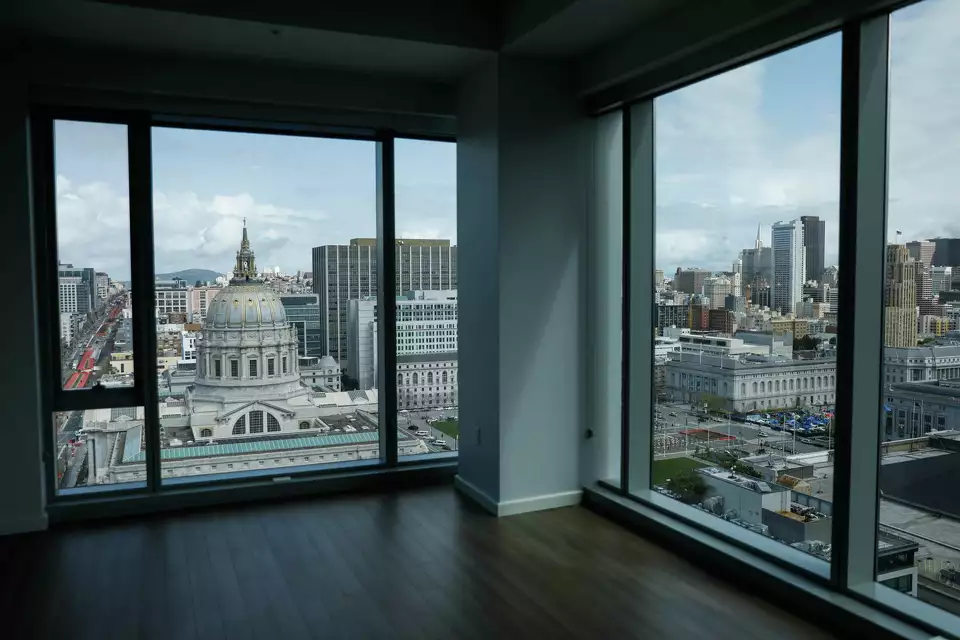https://www.sfchronicle.com/bayarea/article/housing-conversion-bill-19795412.php

A view from an apartment at 100 Van Ness, one of the largest office-to-housing conversion projects in San Francisco. Gabrielle Lurie/The Chronicle
Developers hoping for a faster and easier path to converting empty office buildings to housing in California’s downtowns will have to wait for another legislative session after Gov. Gavin Newsom vetoed legislation that would have fast-tracked such projects.
The measure, AB3068, would have expedited adaptive reuse projects by mandating by-right approval for projects converting offices to residential or mixed-use in city centers. That means that adaptive reuse projects would have been eligible for a streamlined, ministerial review process, regardless of the zoning of the site, bypassing the typical costly environmental review and hearings at planning commissions or city councils.
The bill, written by Assembly Member Matt Haney, D-San Francisco,would have required that at least half of the square footage of the project be dedicated to residential uses.
“While I strongly support efforts to address California’s housing crisis by promoting adaptive reuse projects, this bill raises several concerns,” Newsom wrote in a veto message. “The proposed compliance and enforcement mechanisms for labor standards, including the issuance of stop-work orders for any violations, represent a significant expansion beyond existing law, which limits this remedy to a narrow subset of violations, such as those posing immediate threats to health and safety.”
Newsom said the bill also lacked “clear procedures for contesting violations or addressing noncompliance” that could “lead to delays, and increased costs, potentially making projects financially unviable — ultimately undermining the bill’s goal of increasing housing production.”
In a statement Haney said he would “keep fighting to cut the ridiculous amount of bureaucratic hurdles and red tape that make office to housing conversions too expensive and too lengthy.”
“Most major cities across America have bounced back from COVID but California’s downtowns are still suffering,” he said. “It’s very concerning that with the governor’s veto, California will continue for another year to do nothing — office buildings will sit empty, making our downtowns crime-ridden ghost towns.”
At the inaugural meeting of the Legislature’s Select Committee on Downtown Recovery in August, chaired by Haney, mayors from San Francisco, Sacramento, Long Beach and Riverside all spoke in favor of the legislation. It passed the Senate 27-11.
In previous statements, Haney touted the legislation as the rare initiative that has successfully united groups typically at odds: YIMBYs and historic preservationists. The bill was cosponsored by YIMBY Action and the California Preservation Foundation.
The legislation comes as San Francisco, which has an office vacancy rate of over 30%, has aggressively pushed to reduce obstacles and add incentives to encourage property owners to convert empty downtown buildings. Zoning has been relaxed. Red tape has been eliminated. And, in March, voters approved Prop C., a Mayor London Breed-initiated ballot measure to eliminate transfer taxes on conversion projects.
Breed and Supervisor Matt Dorsey recently introduced legislation that would eliminate fees and affordable housing requirements for all conversions.
Despite the efforts, so far only two conversion projects have been introduced in San Francisco, totaling 165 units.
Reach J.K. Dineen: jdineen@sfchronicle.com

